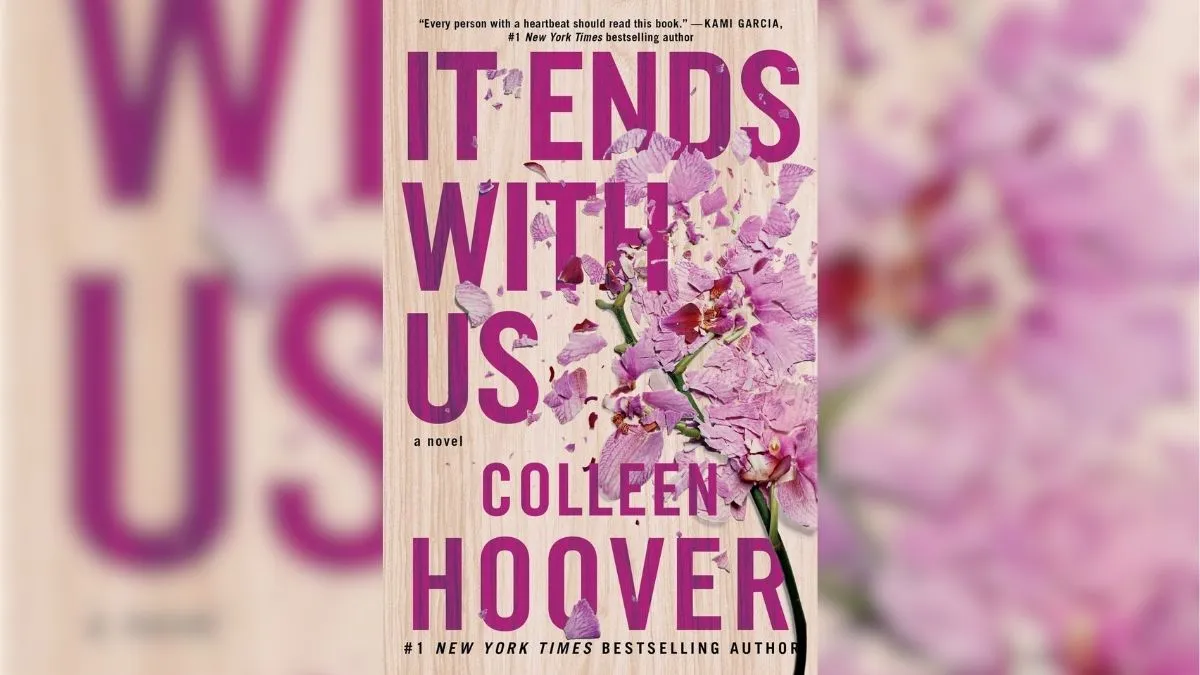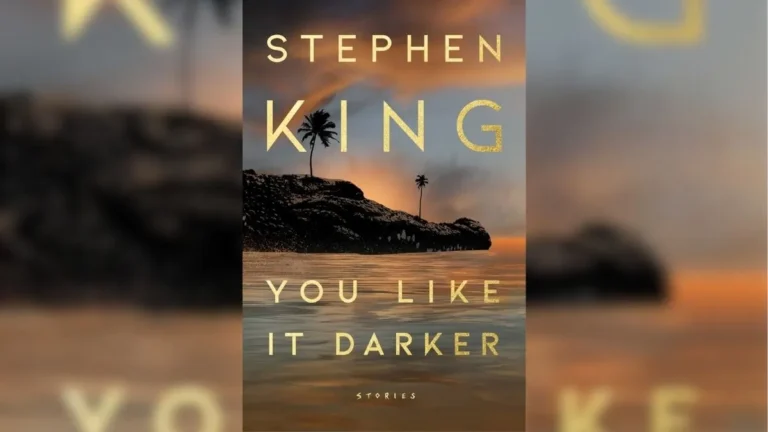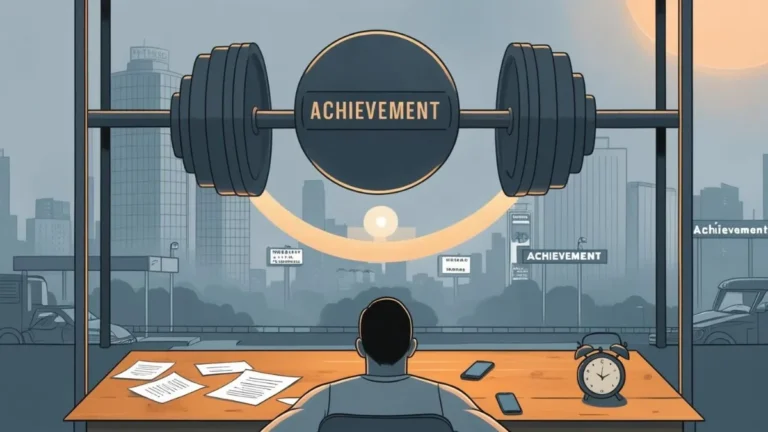Why It Ends With Us Hits Harder Than Most Romance Novels
Colleen Hoover isn’t just a bestselling author; she’s a phenomenon. Known for her raw, unfiltered style, Hoover has this uncanny ability to make readers feel a full spectrum of emotions, often in the same chapter. It Ends With Us isn’t your typical romance novel, and that’s precisely what makes it stand out. Hoover isn’t interested in just telling a love story. She wants to talk about the hard stuff—the hidden hurts, the invisible bruises, and the internal wars we fight when love isn’t as simple as happily-ever-after.
This book isn’t for someone looking for escapism. It’s for the reader who’s ready to confront the complexities of love, the kind of love that’s messy, beautiful, and painful all at once. It Ends With Us blends romance with themes that are deeper and more nuanced. It takes you to vulnerable places and asks you to examine your assumptions about relationships and resilience. This is more than just a “boy meets girl” story. It’s a look at how our pasts shape our futures and how love can sometimes be a source of both healing and harm.
You don’t just read this book; you experience it. And you leave it changed. That’s the magic Hoover brings to the page, challenging us to think about what it means to truly love ourselves and others—even when it’s messy, even when it’s painful. In a world of formulaic romances, It Ends With Us delivers a raw and powerful journey that lingers long after the final page.
A Love Story with an Unforeseen Twist
At its heart, It Ends With Us tells the story of Lily Bloom, a young woman with big dreams and a past she can’t shake, and Ryle Kincaid, a charismatic neurosurgeon with a charming smile and a few shadows of his own. Lily moves to Boston with a fresh start in mind, hoping to leave behind the scars of her childhood. She meets Ryle one night on a rooftop, and from that moment, her life takes an unexpected turn.
Their chemistry is immediate, intense, and seemingly perfect. They bond over what they call “naked truths”—those moments of pure honesty that peel back the layers of their carefully curated selves. But as their relationship deepens, so do the challenges they face. Lily is a hopeful romantic, eager to build a future, while Ryle has always preferred casual flings over commitment. His work comes first, and his emotions are buried, leaving a question mark on their future together.
And just when it seems Lily’s story with Ryle might reach a fairytale ending, her past resurfaces in the form of Atlas Corrigan—her first love, her anchor during dark times, the boy who once held her heart when no one else could. Atlas isn’t just a reminder of what once was; he becomes a beacon of what could be, stirring up memories and unresolved feelings. Without giving too much away, let’s just say that It Ends With Us is filled with unexpected twists that challenge everything Lily thought she knew about love, loyalty, and self-worth.
Exploring the Main Characters
Lily Bloom: Resilience and Heartbreak
Lily Bloom is no stranger to hardship. Growing up in a household marked by domestic abuse, she’s carried the weight of witnessing her mother’s struggles and her own helplessness in the face of it. Moving to Boston is her way of starting fresh, but she brings with her a deep-seated need for healing and an unwavering hope for a better future. Lily is resilient, compassionate, and brave. Her journey is about learning to choose herself and to break the cycle of abuse that marked her childhood. She’s not perfect, and that’s what makes her so relatable—she’s hopeful, flawed, and determined.
Ryle Kincaid: Charisma with a Dark Side
Ryle is the classic “handsome doctor” archetype but with a twist that catches you off guard. He’s confident, intelligent, and dedicated to his work as a neurosurgeon, a job that’s as much his identity as it is his calling. At first, he’s everything Lily wants in a partner—funny, thoughtful, and deeply devoted. But Ryle has layers that only gradually peel away, revealing sides of him that complicate their relationship. His struggle with controlling his emotions brings tension to the story, showing how his inner turmoil impacts those he loves. He’s a reminder that sometimes people aren’t simply “good” or “bad”—they’re complex, capable of both love and harm.
Atlas Corrigan: The Past That Never Fades
Then there’s Atlas Corrigan, Lily’s first love and a figure from her past who reappears at a pivotal moment. Atlas represents safety, love, and a promise of what could have been. Unlike Ryle, Atlas understands Lily’s past intimately, as he shares a similar history of hardship and survival. His return to her life is a catalyst for reflection, forcing Lily to confront old wounds and unanswered questions. Atlas is the quiet strength in Lily’s life, contrasting with Ryle’s volatile presence. Together, these three characters weave a story that’s as complicated as it is compelling, each adding layers to the narrative that make It Ends With Us a powerful exploration of love, identity, and the difficult choices we make.
The “Naked Truths”: An Unfiltered Approach to Relationships
In It Ends With Us, Colleen Hoover introduces the concept of “naked truths”—moments of pure honesty that strip away all pretenses and leave only the bare essentials of who the characters really are. It’s a ritual that begins between Lily and Ryle on a rooftop, where they each take turns sharing their most vulnerable thoughts without sugarcoating or spinning them into something they’re not. It’s more than just an exchange of secrets; it’s a way of seeing each other clearly, with no walls and no defenses.
“Naked truths” become a foundation for their relationship, a place where Lily and Ryle can be authentic, flaws and all. For Lily, who has grown up suppressing her emotions, this openness is refreshing, even thrilling. For Ryle, it’s a release from his guarded personality and the perfection he tries to project to the outside world. In a way, these moments of honesty help them bond deeply, quickly. It’s not just physical attraction that holds them together but a real, raw connection born out of vulnerability.
This concept resonates because it speaks to something we all crave—being fully seen and accepted for who we are. Yet, it also foreshadows the cracks in their relationship. Naked truths are powerful, but they’re only as healthy as the people sharing them. While these moments draw Lily and Ryle closer, they also reveal the unsettling aspects of Ryle’s character. The beauty of naked truths lies in their honesty, but sometimes, that honesty uncovers truths that are painful or difficult to face. Hoover uses this device not just to deepen the romance but to hint at the emotional landmines beneath the surface.
A Realistic Portrayal of Abuse and Trauma
Hoover doesn’t shy away from the reality of abuse in It Ends With Us. She paints a raw, unfiltered picture of domestic violence that’s painful to witness, especially as we see it through Lily’s eyes. Growing up with an abusive father, Lily carries the scars of witnessing her mother’s suffering. These experiences shape her view of love and influence the choices she makes as an adult. Hoover doesn’t sanitize the pain or offer easy answers; she invites us to sit with the discomfort, to understand what it feels like to be torn between love and fear.
Lily’s family history is central to her story. Her past is woven into every decision she makes, from her initial attraction to Ryle’s confidence and charm to the moments when she rationalizes his harmful behavior. She sees glimpses of her father in Ryle, but the trauma complicates her reaction. Hoover captures the heart-wrenching cycle of abuse—how it traps people in patterns, blurring the lines between what’s acceptable and what’s not. For Lily, breaking free isn’t just about leaving Ryle; it’s about reclaiming her own sense of worth and rewriting her story.
This portrayal is more than just storytelling—it’s a call for empathy. Domestic violence is complex, and Hoover shows us that survivors don’t need judgment; they need support and understanding. By immersing us in Lily’s journey, she challenges readers to confront the reality of abuse, to see beyond stereotypes, and to understand the courage it takes to leave. This book is an important reminder of why awareness matters. It’s not just a narrative choice; it’s a message about the importance of compassion and the need for a world that doesn’t turn a blind eye to violence in relationships.
Character Development: From Hopeless Romantic to Self-empowered Survivor
Lily’s journey in It Ends With Us is one of transformation. She begins as a hopeless romantic, someone who believes in love’s power to heal and redeem. She wants to see the good in people, to trust that love will be enough to smooth out the rough edges. But as her relationship with Ryle unfolds, she’s faced with harsh realities that challenge her beliefs. The man she loves has a side that’s hurtful and dangerous, and she’s forced to confront her own boundaries.
Ryle’s character adds depth to Lily’s growth. His confidence and ambition initially sweep her off her feet, but his flaws soon reveal themselves. Ryle’s inability to manage his anger becomes a red flag that Lily can’t ignore, even as she wrestles with her feelings for him. Through him, Hoover shows us that love isn’t always redemptive and that sometimes, leaving is the most loving choice we can make for ourselves. Ryle’s character serves as a stark reminder that charm and success don’t equate to emotional safety.
By the end, Lily’s journey is one of self-empowerment. She learns to put herself first, to prioritize her well-being over her desire for a fairytale ending. Choosing to leave Ryle is not just an act of survival but a declaration of her own worth. Lily’s story is about breaking cycles, defying expectations, and finding strength in vulnerability. It’s a powerful arc that resonates because it’s painfully real. Hoover crafts Lily’s transformation with empathy and insight, giving readers a character who is strong, relatable, and deeply human.
Why It Ends With Us Resonates with Readers Worldwide
There’s a reason It Ends With Us has captured hearts across the globe: it’s more than just a love story. At its core, the novel explores universal themes of resilience, growth, and self-love. Colleen Hoover doesn’t just ask us to root for Lily’s happiness; she challenges us to examine our own definitions of strength and vulnerability. Lily’s journey is one of rising from the ashes, of learning to choose herself in a world that often asks women to sacrifice their own well-being for the sake of love.
Readers see themselves or someone they know in Lily. Maybe it’s a friend who stayed too long in a toxic relationship, or a family member who has struggled with their own trauma. Or perhaps it’s us, at a moment when we were torn between heart and reason. Hoover’s gift is making these struggles feel intensely personal, as if she’s holding up a mirror to parts of ourselves that we’d rather not confront. Lily’s resilience isn’t just inspiring—it’s relatable. We’ve all been in situations where we had to summon strength we didn’t know we had, where we had to let go of something, or someone, we thought we couldn’t live without.
Ultimately, It Ends With Us resonates because it’s about choosing love—the right kind of love. It’s about breaking cycles, setting boundaries, and finding the courage to live for ourselves. This isn’t a simple story with an easy moral. It’s a journey through the messy reality of relationships, and it reminds us that self-love and resilience are the real happy endings we should strive for.
What Works and What May Not Work for Every Reader
Colleen Hoover’s storytelling style is undeniably unique. She weaves romance with dark, difficult themes, creating a narrative that’s both addictive and challenging. Her prose is accessible, her pacing swift, and her characters are achingly human. She doesn’t sugarcoat reality or offer tidy resolutions, which is part of what makes her stories feel so raw and powerful. For many readers, Hoover’s blend of romance and grit is refreshing—a love story that isn’t afraid to get its hands dirty, to show the unvarnished truth behind fairytale facades.
However, this style may not work for everyone. The pacing can feel relentless, moving from romance to trauma to redemption without giving readers much room to breathe. For some, the emotional intensity might feel overwhelming, even exhausting. Hoover’s handling of heavy themes, like domestic abuse, is unflinching, but this can also make the novel difficult to read, especially for those who have lived through similar experiences. It’s not a book that gently eases you into its dark themes; it drops you in and lets you sink or swim.
There’s also the critique that It Ends With Us doesn’t delve deeply enough into the consequences of Ryle’s actions, leaving some readers wanting a more thorough exploration of trauma and recovery. The balance between romance and serious themes can feel uneven, making the book polarizing for readers. But maybe that’s the point—Hoover isn’t trying to please everyone. She’s telling a story that’s messy and real, even if it doesn’t fit neatly into one genre or follow a conventional path.
A Tale of Heartbreak and Empowerment
It Ends With Us is more than a novel—it’s an experience. It’s the kind of book that stays with you long after you’ve turned the last page, leaving a lingering ache and a sense of hard-won hope. This is a story about heartbreak, yes, but it’s also a story about empowerment, about choosing yourself even when it’s the hardest thing to do. Colleen Hoover gives us a protagonist who is both vulnerable and fierce, who faces her past with honesty and her future with courage.
What makes It Ends With Us so memorable is its refusal to offer easy answers. Love isn’t portrayed as a cure-all, but as something that requires boundaries, self-awareness, and a commitment to personal growth. Lily’s journey is painful, raw, and ultimately empowering, reminding us that sometimes the bravest thing we can do is walk away. This isn’t a fairytale; it’s real life, with all its complexities and contradictions.
If you decide to pick up It Ends With Us, do it with an open heart. Be prepared to feel deeply, to question your assumptions about love and strength, and to be moved by a story that doesn’t shy away from the tough topics. This isn’t just a book you read; it’s a journey you take with Lily, one that will leave you changed.
Share Your Thoughts
Have you read It Ends With Us? Did it resonate with you, or did you find parts that didn’t sit well? This book isn’t just a story—it’s a conversation. We’d love to hear your reflections, whether you connected with Lily’s journey or found yourself questioning her choices. Share your thoughts in the comments or connect with others who have been impacted by this powerful story. Let’s open up a dialogue about love, resilience, and what it means to choose yourself.



